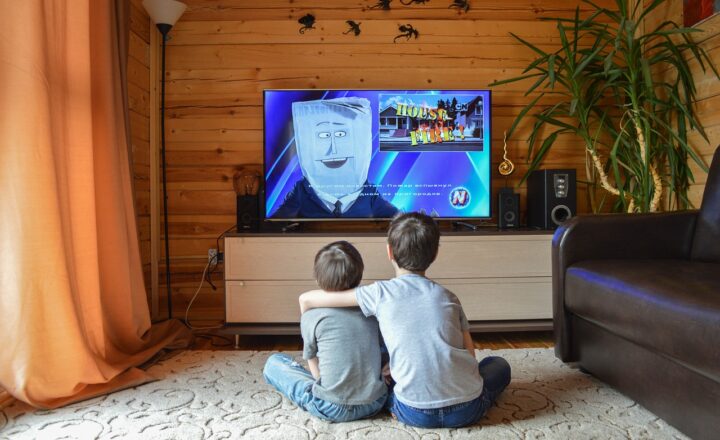
Television has been a potent medium for storytelling, shaping societal views and cultural norms over decades. From groundbreaking social issues to innovative storytelling techniques, some TV shows have resonated so profoundly that they changed the world’s perspective on critical topics. In this article, we explore ten iconic TV shows that not only entertained but also inspired change, ignited conversations, and challenged the status quo.
1. All in the Family (1971-1979)
All in the Family took on tough societal issues, including racism, sexism, and class struggles, through the lens of a working-class family. Archie Bunker, played by Carroll O’Connor, was a loud, opinionated patriarch who embodied the prejudices of his time. However, through comedic yet poignant storytelling, the show managed to humanize conversations around politically charged topics, making them more approachable. Impact: This influenced future sitcoms by showing how humor can tackle serious subjects and educate audiences.
2. Roots (1977)
Based on Alex Haley’s novel, Roots traced the lineage of an African man, Kunta Kinte, who was captured and sold into slavery. The miniseries was a groundbreaking depiction of America’s history with slavery and its effects on subsequent generations. It sparked national discussions about race and heritage. The show became a cultural phenomenon that paved the way for more diverse storytelling. Impact: Roots opened the door for projects focusing on Black narratives and history in television and film.
3. The Simpsons (1989-present)
With its satirical take on the American family and society, The Simpsons holds a mirror to modern life and its absurdities. The show addresses numerous societal issues, including politics, consumerism, and culture in a humorous yet thought-provoking way. Its longevity and cultural relevance showcase its capacity to adapt and challenge norms. Impact: The Simpsons influenced a generation of animated shows and contributed to the rise of adult animation, pushing boundaries of satire in media.
4. The X-Files (1993-2018)
Combining science fiction, horror, and drama, The X-Files explored government conspiracies and the existence of extraterrestrial life. It examined the profound distrust in government institutions while tackling issues like climate change and mental health. This show brought together diverse audiences, galvanizing intrigue around UFOs and unexplained phenomena. Impact: Its cult following paved the way for similar shows and inspired a resurgence of interest in conspiracy theories.
5. Friends (1994-2004)
Friends not only redefined the sitcom genre but also showcased the importance of friendship, love, and personal growth. It brought to light themes such as single parenthood, LGBTQ+ relationships, and adulthood struggles in a relatable way. Despite criticism for lacking diversity, Friends became a cultural touchstone for millennials. Impact: It influenced subsequent buddy comedies and showcased the changing landscape of urban living.
6. The Wire (2002-2008)
Regarded as one of the greatest television series of all time, The Wire delved into the complexities of urban life in Baltimore, Maryland, exposing systemic issues in education, law enforcement, and the drug trade. Its realistic portrayal allowed viewers to confront uncomfortable realities surrounding race and class. It pushed the envelope for crime drama, demanding empathy and understanding. Impact: The series set new standards for character development and storytelling in television, influencing future shows seeking social commentary.
7. Breaking Bad (2008-2013)
Breaking Bad tells the story of Walter White, a high school chemistry teacher who turns to cooking methamphetamine after being diagnosed with cancer. This show challenges moral boundaries, questions the American Dream, and explores drug culture. The character’s transformation from morally upright to villain illustrates the complexity of human nature. Impact: Breaking Bad reshaped prestige television and set a new high bar for narrative depth and character complexity.
8. Orange is the New Black (2013-2019)
Centered in a women’s prison, Orange is the New Black brought issues of race, sexuality, and gender to the forefront. It broke stereotypes of incarcerated women and showcased the diverse stories of its characters. By emphasizing the systemic problems within the prison system, the show encouraged discussions about criminal justice reform. Impact: It helmed a new era of diverse, character-driven narratives focusing on underserved voices in the media landscape.
9. Game of Thrones (2011-2019)
Based on George R.R. Martin’s novels, Game of Thrones became a cultural sensation, not only for its intricate storylines and character development but also for its exploration of power dynamics, loyalty, and moral ambiguity. The show’s brutality forced viewers to confront the harsh realities of power, war, and survival. Impact: Its success propelled fantasy storytelling into mainstream media, influencing countless adaptations and spinoffs.
10. Black Mirror (2011-present)
This anthology series explores the dark side of technology and its impact on society. Each episode presents a standalone story, often featuring dystopian themes that caution against unchecked technological growth. By challenging viewers’ perceptions of technology, Black Mirror invites critical discourse about the future of humanity. Impact: The series has invigorated discussions on privacy, AI, and social media, warning against the potential consequences of our current trajectory.
Conclusion
Iconic TV shows have a remarkable ability to shape our understanding of the world around us. Through innovative storytelling and a courageous approach to sensitive topics, these series have sparked dialogue and changed the way we view society. Whether through comedy, drama, or satire, the shows listed above have demonstrated the power of television as a catalyst for cultural change. As television continues to evolve, we can expect to see new narratives that challenge the norms and inspire the next generation.
In watching and engaging with such content, we not only become informed viewers but also informed citizens, ready to foster change based on the insights television can provide.







